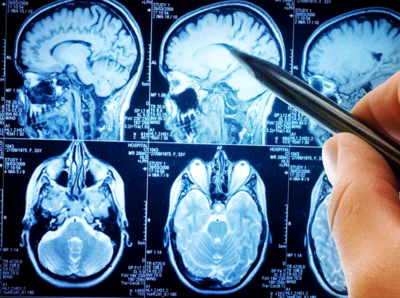

Have you ever wondered what goes on in your brain during the ‘deep sleep’ phase? Scientists have been able to find out exactly that. Considering that we sleep close to a third of our time, it’s amazing to see what happens when we are sound asleep.
Scientists used artificial intelligence to decode the brain activity in our sleep using two types of technology. They used functional magnetic resonance imaging or fMRI and electroencephalography (or EEG). Using this technology, they are able to gather and organize thousands of pieces of information that are processed during the deep sleep phase.
When we sleep at this stage, the brain will not receive any external stimuli. Meanwhile, internal dialogue is occurring between various areas of the brain. It’s also working on memorizing it in its entirety for as long as possible. The findings of this study were revealed in the Nature Communications journal.
Sleep is known to play a major role in managing our emotions as well as consolidating our memory. Scientists were able to crack the code on how areas of the brain can put together what we remember from the day before and how it corresponds with our brain activity during deep sleep. During the deep sleep period, the hippocampus, which is part of the temporal lobe that stores trace elements of recent events, will communicate with the cerebral cortex Trusted Source Cerebral cortex may actually be responsible for sleep control Why we sleep, and the processes behind sleep, are amongst the most interesting questions in modern neuroscience. www.news-medical.net using the information it has stored.
At this time, this dialogue between two parts of the brain Trusted Source What does the sleeping brain think about? - ScienceDaily Using an artificial intelligence approach capable of decoding brain activity during sleep, scientists were able to glimpse what we think about when we are asleep. By combining fMRI and EEG, they provide unprecedented evidence that the work of sorting out the thousands of pieces of information processed during the day takes place during deep sleep. Indeed, the brain can evaluate all of these memories in order to retain only the most useful ones. www.sciencedaily.com takes place. As it happens, the consolidation of your memory occurs by replaying the events that occurred on that particular day, allowing neurons to reinforce the link between these two specific areas of the brain.
Scientists used EEG to measure sleep states while combining it with functional MRI technology. The MRI is designed to take an image of brain activity every two seconds. From there, it will use a neuronal decoder to determine the brain activity of occurring events. For example, scientists were studying volunteers of a sleep study that were playing video games that helped challenge their brain, such as a 3D maze game.
The brain activity of the volunteers was recorded during this time. Games like the maze game were chosen because of their ability to activate different areas of the brain. For this reason, it would allow the MRI to easily pick up on it. Unbeknownst to the volunteers, the games were rigged between two groups of volunteers. Specifically, one group would win one round, and the other group would win the next round after that.
The goal of this study was to see what the brain would associate with positive emotions when the volunteers won the game. Soon after, the volunteers would sleep for anywhere between one to two hours (which is the length of a sleep cycle). During this time, researchers once again recorded their brain activity.
During the deep sleep phase, the brain activation patterns were similar to the ones that were recorded during the time when the volunteers were playing games. As expected, the brain was able to replay the moment when the volunteers won their round of games. Two days after the initial gaming, volunteers took a memory test that allowed them to recognize the faces from a game of “Guess Who” and also be able to identify the starting point of the maze in the other game.
Once again, areas of the brain were activated once again only this time enhancing the memory performance of the volunteers. Researchers concluded that the memory of each volunteer improved vastly when they were rewarded, even while sleeping.





